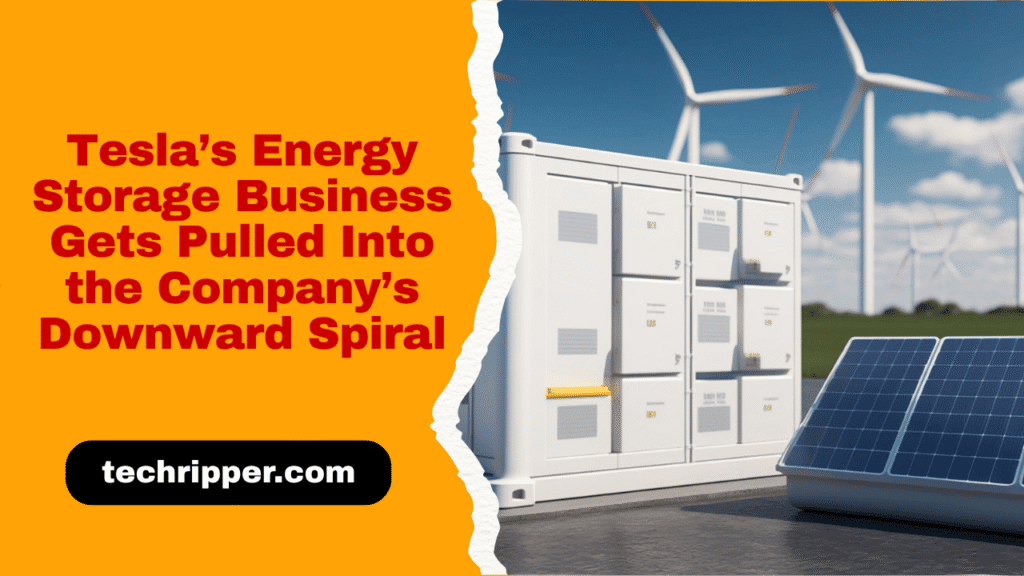Even Tesla’s energy storage division—long a rare bright spot in the company’s sprawling operations—can’t seem to escape the turbulence swirling around the electric automaker.
For the second quarter in a row, installations of Tesla’s Powerwall home batteries and Megapack utility-scale storage systems have fallen. According to the latest figures released by Tesla, the company deployed 9.6 gigawatt-hours of stationary storage in Q2. That’s down from 10.4 GWh in the first quarter—a decline of about 8%.
It’s a sharp reversal from late last year, when Tesla’s storage business hit an all-time high. In the final quarter of 2024, the company deployed 11 GWh, capping a year in which total installations reached 31.4 GWh. Until recently, energy storage had been one of Tesla’s most consistent growth engines, with revenue ballooning from $2 billion in 2020 to $10.1 billion in 2024 as demand for battery backup systems surged.

This year, though, the picture has quickly darkened. Tesla’s rocky start to 2025 suggests the growth streak may be ending, just as the rest of the market is accelerating.
In fact, the broader energy storage industry has been thriving. Analysts at Wood Mackenzie reported that new installations hit a record high in Q1, growing 57% year-over-year—a sign that customers and utilities alike remain eager to invest in batteries to shore up the grid and cut carbon emissions.
But storm clouds are looming over the entire sector. The surge in installations is unlikely to continue, as multiple headwinds gather strength. Tariffs on Chinese-made goods are now colliding with the potential fallout from a Trump-backed reconciliation bill making its way through Congress. Republican lawmakers are trying to unwind key provisions of the Inflation Reduction Act, legislation that has been crucial to spurring clean energy investment.
While tax credits for battery storage installations could technically survive in some form, new restrictions on materials sourced from foreign entities of concern mainly China could make it almost impossible for companies to qualify. That’s no small hurdle: the vast majority of minerals essential to modern battery production are processed or refined in China.
All of it leaves Tesla in a precarious spot. The company’s energy storage business was once a reliable source of growth and optimism. Now, it’s yet another part of the empire struggling to outrun the company’s broader troubles—and a rapidly shifting political and economic landscape.
Also Read : Automattic Pauses Tumblr Migration to WordPress

